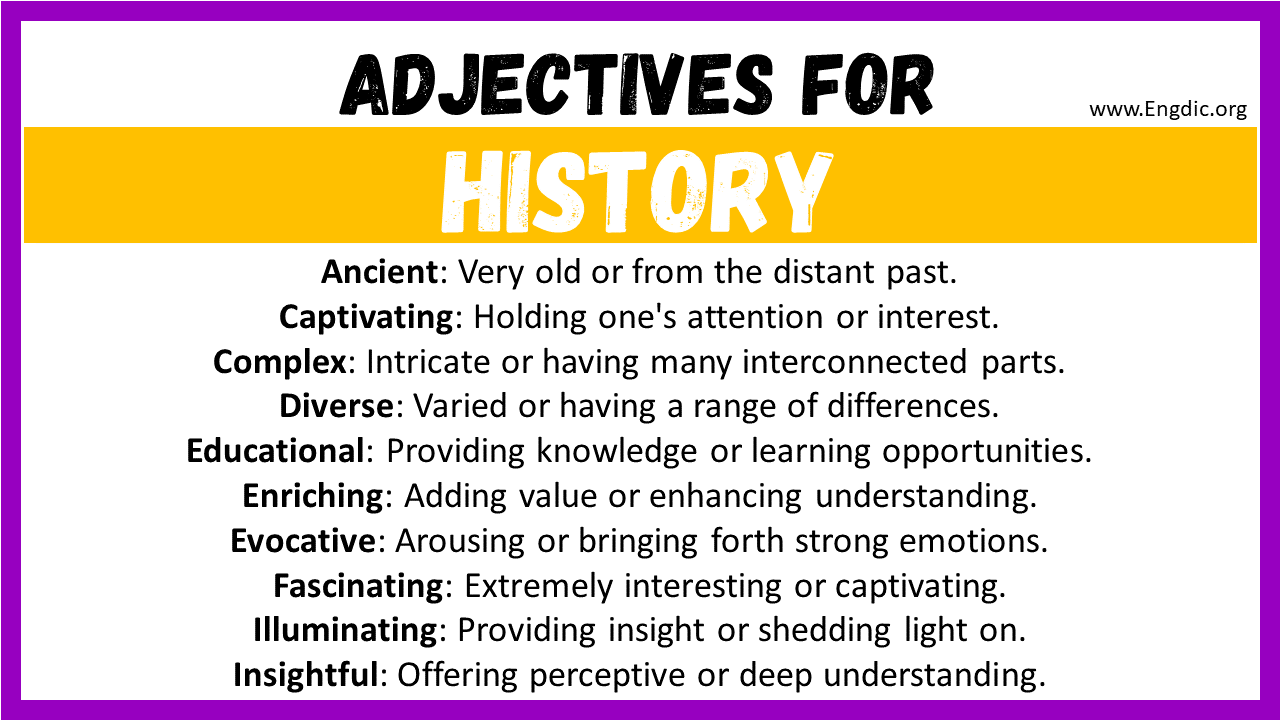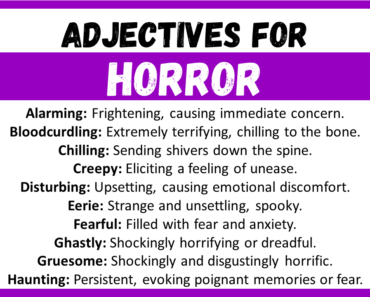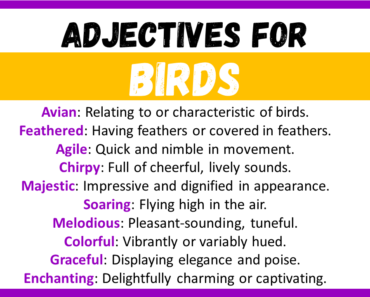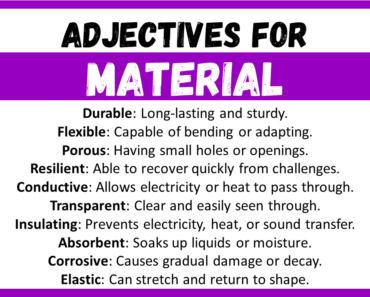History is like a captivating tale that unfolds the events and experiences of the past. It is a treasure trove of knowledge that allows us to understand our roots, learn from the triumphs and failures of our ancestors, and shape our present and future. When it comes to describing history, an array of words comes to mind: intriguing, enlightening, complex, transformative. These words encapsulate the essence of history, revealing its power to educate, inspire, and connect us to the rich tapestry of human existence.
Adjectives for History
Here are the 20 Most Popular adjectives for history:
- Ancient
- Captivating
- Complex
- Diverse
- Educational
- Enriching
- Evocative
- Fascinating
- Illuminating
- Insightful
- Inspiring
- Intriguing
- Multi-dimensional
- Past
- Rich
- Significant
- Transformative
- Unforgettable
- Vast
- Wondrous
Adjectives for “history shows”:
- Engaging
- Informative
- Educational
- Entertaining
- Insightful
- Compelling
- Enriching
- Thought-provoking
- Captivating
- Revelatory
Adjectives for “historical places”:
- Majestic
- Enchanting
- Timeless
- Picturesque
- Storied
- Breathtaking
- Serene
- Evocative
- Authentic
- Enigmatic
Adjectives for “historical monuments”:
- Grand
- Iconic
- Monumental
- Revered
- Architectural
- Impressive
- Symbolic
- Enduring
- Commemorative
- Heritage-rich
Adjectives for “historical fiction”:
- Imaginative
- Evocative
- Gripping
- Atmospheric
- Compelling
- Authentic
- Vivid
- Intriguing
- Transportive
- Dramatic
Words to Describe History with Meanings
- Ancient: Very old or from the distant past.
- Captivating: Holding one’s attention or interest.
- Complex: Intricate or having many interconnected parts.
- Diverse: Varied or having a range of differences.
- Educational: Providing knowledge or learning opportunities.
- Enriching: Adding value or enhancing understanding.
- Evocative: Arousing or bringing forth strong emotions.
- Fascinating: Extremely interesting or captivating.
- Illuminating: Providing insight or shedding light on.
- Insightful: Offering perceptive or deep understanding.
- Inspiring: Motivating or encouraging creative thoughts or actions.
- Intriguing: Fascinating or arousing curiosity.
- Multi-dimensional: Having many different aspects or layers.
- Past: Relating to or occurring in earlier times.
- Rich: Abundant in significance, detail, or content.
- Significant: Important or having notable impact.
- Transformative: Producing a marked or profound change.
- Unforgettable: Memorable or impossible to forget.
- Vast: Extensive or immense in size or scope.
- Wondrous: Astonishing or inspiring awe and wonder.
Example Sentences for History Adjectives
- The ancient artifacts were carefully preserved in the museum.
- The captivating story kept the audience on the edge of their seats.
- The topic was too complex to explain in a single sentence.
- The group consisted of diverse individuals from different backgrounds.
- The museum offers educational tours for school groups.
- The novel provided an enriching experience for the readers.
- The painting was so evocative, it brought tears to her eyes.
- The documentary on wildlife was truly fascinating.
- The book provided illuminating insights into the author’s life.
- Her insightful comments helped the team come up with a solution.
- The movie was truly inspiring, motivating people to chase their dreams.
- The mysterious letter sparked an intriguing
- The movie had a multi-dimensional plot with various twists.
- The historian studied the past to understand the present.
- The book offered a rich portrayal of the historical era.
- The discovery of the lost city was a significant archaeological find.
- The trip abroad was a transformative experience that changed her life.
- The breathtaking view left an unforgettable impression on us.
- The library contained a vast collection of historical documents.
- The fireworks display was a wondrous spectacle to behold.
Explore More Words:
FAQ’s
How to describe history in writing?
History can be described in writing by using vivid language, detailed imagery, and a chronological narrative to convey the events, people, and significance of the past.
What are adverbs to describe history?
Adverbs that can be used to describe history include “accurately,” “vividly,” “thoroughly,” “concisely,” “chronologically,” “insightfully,” “comprehensively,” “engagingly,” “persuasively,” and “contextually.”








